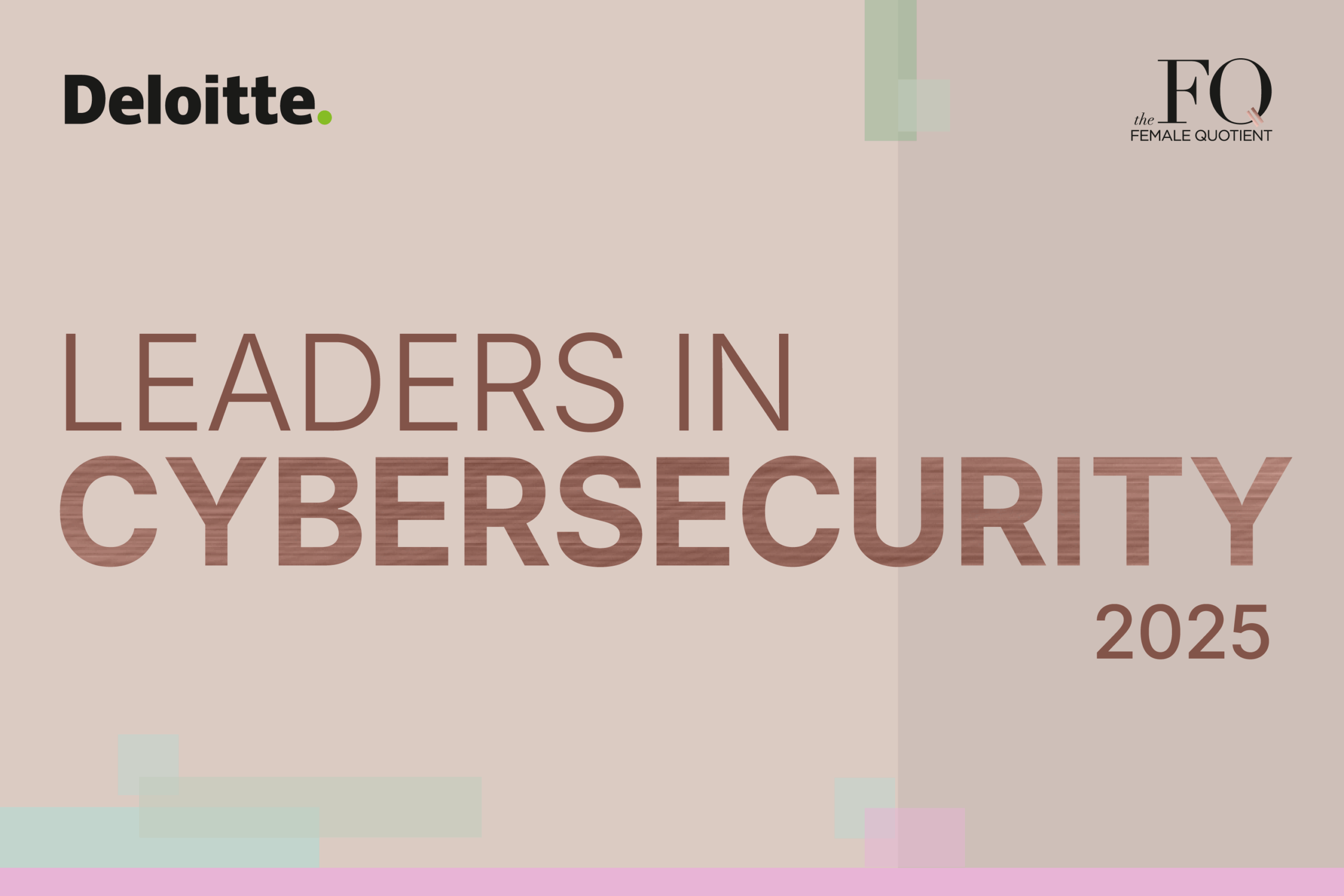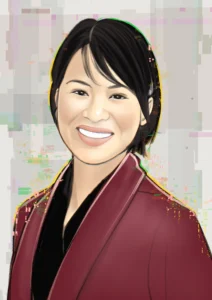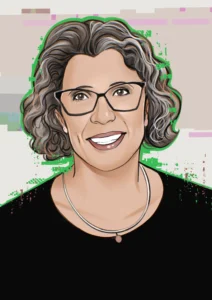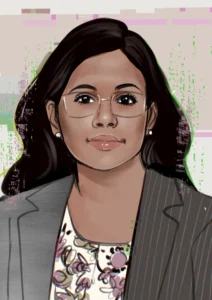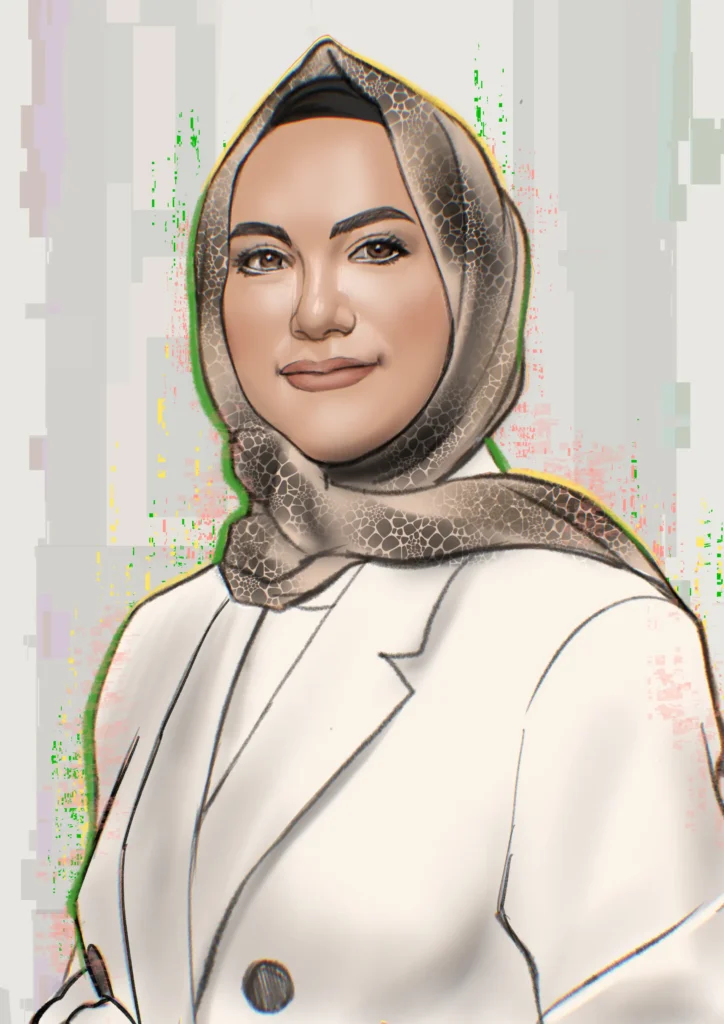
Sara Ibrahim
“Always stay curious and never stop learning, even outside your field.”
Sara Ibahim is a go-to specialist in industrial cybersecurity, known for jumping in, taking the lead, and getting things done. As a trusted technical advisor and subject matter specialist across both tech and governance, risk, and compliance (GRC), she helps clients figure out what they need, choose the right solutions, and build smart strategies that actually move the business forward. She’s all about solving tough cybersecurity challenges with a mix of sharp technical skills and real-world business sense, and she’s always learning to stay ahead of the game.
What is one skill, interest or talent of yours that makes you great at your job?
My ability to communicate complex technical concepts in a clear and concise manner is my superpower. It allows me to bridge the gap between technical teams and executive leadership, helping to ensure that everyone is aligned and informed.
What is the best piece of unconventional career advice you’ve gotten?
Always stay curious and never stop learning, even outside your field. This advice encouraged me to explore interests and skills that may not directly relate to my job, but can provide fresh perspectives and innovative solutions. By broadening my knowledge base and staying curious, I’ve been able to approach problems creatively and bring unique insights to my work.
What is your proudest moment working in the cybersecurity industry?
My proudest moment was successfully leading a comprehensive cybersecurity overhaul for a client in a highly regulated industry. The project involved assessing vulnerabilities, evaluating risks, and implementing advanced security measures and solutions to treat the risks. Through effective communication with various stakeholders, we were able to align on objectives and help ensure seamless implementation of the security enhancements.
Knowing that our efforts directly contributed to protecting critical infrastructure and ensuring the uninterrupted delivery of vital services to communities reinforced the importance of our work.
When did you become interested in pursuing a career in cyber and what prompted it?
I became interested in pursuing a career in cybersecurity, specifically in Operational Technology (OT) cybersecurity, after working as an Automation Engineer. My interest was sparked by the rise of devastating attacks like Stuxnet and other large-scale cyber incidents targeting critical infrastructure. These attacks highlighted the vulnerabilities in critical infrastructures and the profound impact they could have on essential services and national security. This passion to help prevent catastrophic incidents and safeguard critical infrastructure continues to motivate me.
What are the top 3 things you would tell people hoping to enter the cybersecurity industry?
- Continuous learning and adaptability are crucial. Cybersecurity is a rapidly evolving field, so it’s essential to stay updated on the latest trends, tools, and leading practices.
- Developing a strong foundation is key. It will enable you to grasp more complex topics and effectively address various cybersecurity challenges.
- Cultivating problem-solving skills is important. Strong analytical and problem-solving skills are key to identifying vulnerabilities, evaluating risks, and implementing effective security measures.
What are some misconceptions people might have about the cybersecurity industry and what can we do to change these misconceptions?
One common misconception is that cybersecurity is solely about hacking. In reality, it involves a wide range of activities, including risk management, compliance, and incident response. Educating the public about these diverse roles can help change this perception.
Another is that cybersecurity is relevant only to IT professionals. In truth, it impacts various fields, such as law, policy, and business strategy. Some even believe that cybersecurity is a static field, but it requires continuous learning and adaptation to new threats and technologies.
Do you feel like you’re contributing to helping keep our world secure and can you share why that matters to you?
Absolutely. Working in cybersecurity, especially in the critical infrastructure field, allows me to help protect essential services that millions of people rely on daily. It directly impacts the well-being of our society, so knowing that my efforts help safeguard vital resources and maintain stability gives me a profound sense of purpose and motivation.
What positive change do you think will take place as we bring the next generation into the cybersecurity industry?
The next generation’s heightened awareness and education about cybersecurity issues will lead to a stronger emphasis on security practices. Growing up in a digital age, they will be more proactive in safeguarding information and promoting cybersecurity awareness.
Who is your role model in the cybersecurity industry and why?
I have multiple role models in the cybersecurity field who I always seek advice from. They are passionate about nurturing the next generation of cybersecurity professionals and actively supporting aspiring individuals in the industry.

